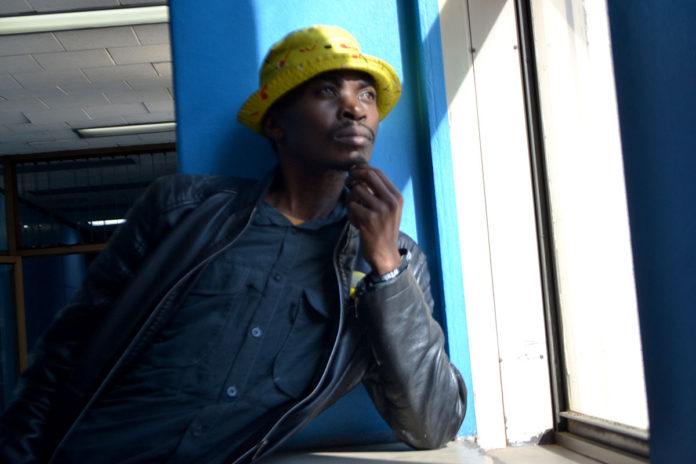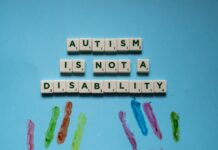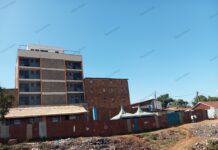By Diana Chiyangwa
Johannesburg, South Africa: “On National Youth Day, June 16, 2010, I gave up on my dream of becoming a journalist,” Mcasiseli Brandon Gwaza said.
The South African government issued a directive in 2017, which still left many migrant children unable to write their National Senior Certificate examinations, commonly known here as “Matric”, due to a lack of proper travel documents.
Mcasiseli Brandon Gwaza was one of them.
In 2017, Umalusi (Council for Quality Assurance in General and Further Education and Training) issued an instruction to all examination assessment bodies that a valid South African identity document or passport for non-citizen learners, would be a pre-requisite for both registration and certification.
Even way before this government directive, Gwaza, a 34-year-old Zimbabwean-born national, had his dreams shattered due to a lack of documentation, which forced him out of school during his final year in high school.
Gwaza left Zimbabwe in 2005 and moved to South Africa to live with his mother, who was a domestic worker by then. They both lived in Florida, closer to where his mother was working.
“Through the assistance of my mother’s boss, I managed to be enrolled for Grade 9 at Tulip High School in Roodeport. I was happy and excited because I knew my dreams were going to be fulfilled,” Gwaza explained.
Although education is a fundamental basic human right in South Africa, for thousands of undocumented migrant children like Gwaza, it still remains unattainable.
Thandeka Chauke, Head, Statelessness Project Refugee, and Migrant Rights Programme at Lawyers for Human Rights, explained: “The Constitution protects the right to basic education for all children in South Africa. In a 2019 court case, it was confirmed that this right is inclusive of both South African and non-citizen children, regardless of documentation or immigration status.”

Without a refugee claim, or if their families did not leave their countries due to conflict or persecution, migrants like Gwaza fail to get formal documents in South Africa, which would enable them to study, especially in government schools.
In Gwaza’s case, registering for matric exams was a challenge, as he did not have either a study permit or an asylum seeker’s permit. Although his mother was documented, she could not manage to get him either a South African document or a study permit.
Due to the socio-economic situation faced by Gwaza, going back to Zimbabwe to apply for a study permit was a challenge as it required a lot of money to process the application. The only option that was left for him was to apply for an asylum seeker’s permit.
His first attempt to apply for an asylum seeker permit at Desmond Tutu Refugee Reception Centre in Marabastad, Pretoria, was met with lots of demands. He was asked to produce a letter of support stating his reasons for leaving Zimbabwe. Economic instability in Zimbabwe was the only reason that drove him to seek greener pastures in South Africa. As a young person, he saw no future in Zimbabwe and he believed that moving to the city of gold was the only ticket to escape the hardships, like many other unemployed Zimbabwean youths.
The beginning of the nightmare
Since Gwaza had no reason and no supporting document to seek asylum, the Refugee Status Determination Officer automatically denied him an asylum seeker’s permit.
“As migration trends escalate, the number of migrant children across the globe also continues to rise. UNICEF has estimated that there are more than 600 00 migrant or displaced children currently living in South Africa, making it the country with the largest child migrant population on the continent” Chauke said.
“When the pressure at Tulip High School was mounting for me to produce an identity document, of which I had tried obtaining one, I finally gave up my dreams of becoming a journalist and dropped out of school. Fortunately, I was very passionate about performing arts I then decided to pursue creativity by teaching theatre in schools around Tembisa.” Gwaza said.
“The Jesuit Refugee Service Advocacy and Education programs assist children who have been denied access to the school by writing letters to schools or district offices outlining the child’s right to access education despite their documentation. Most important is the Education circular 1 of 2021 which stipulates that a child can use an affidavit with their identifying details as an alternative form of documentation” says Abigail Dawson Advocacy Coordinator at JRS.
Chauke argues; “While migration is often viewed in a negative light in South Africa, there are in fact many benefits to it and it is worthwhile for South Africa to consider policies that ensure and facilitate ease of access to education for migrant children in order to maximize on these benefits. This includes policies around documentation or regularisation of legal status and education funding that would yield investment in a skilled labour force, meaningful participation in the economy, and contributions to sustainable development and tackling poverty.”

Lack of access to information is another barrier to many migrants in South Africa. Chiedza Chipunza 16, who is currently doing Grade 12 at a Johannesburg school would have been unable to write her final exams, also due to lack of documentation.
Speaking to TalkAfrica, Chipunza’s mother, Susan, holder of a Zimbabwean Exemption Permit (ZEP), which is expired in December last year but is still holding on due to a 12-month grace period, is unable to get her daughter the necessary documents in time for her to write her matric exams.
“I am caught in the horns of a dilemma, my daughter has a Zimbabwean passport but doesn’t have a study permit, she was able to register but I am not yet sure if she would be able to write her final exams, because the school needs her documents by end of June 2022. It’s a tricky situation, she might be allowed to write but cannot be granted a matric certificate” Chipunza said.
According to Chauke, the 2017 instruction was subsequently recalled by Umalusi in 2018, meaning that undocumented learners are now entitled to register for examinations and receive their certificates. This is a progressive move as the Constitution states that the right to basic education extends to everyone within the boundaries of South Africa; documentation and/or immigration status is immaterial.

The right to education pertains to all aspects of education including, the right to be admitted to a school, the right to partake in extracurricular activities, and the right to write examinations and receive results.
In Chipunza’s current case, could it be a case of ignorance by the school to inform learners and their parents of the Department of Basic Education’s circular in 2018 that instructed all schools not to turn away undocumented learners from school?
Chipunza further explains that the documentation issue had led to the hospitalization of her daughter (Chiedza) due to depression.
In a situation such as Chipunza’s, Save the Children South Africa, a child rights organization “has a drive to provide capacity building or advocacy stations with education officials to ensure that correct information is understood in the society” said Nyika Machenjedze Programs Manager for Migration Displacement Programme.
Accessing data of undocumented children in the South has been a huge challenge and as a result, Save the Children is working on a mechanism to develop data gathering and development for migrant children, to ensure current and useful continuous data in collaboration with other organizations like UNICEF and IOM.
Call to action
One of the calls to the Department of Home Affairs, by Consortium for Refugees and Migrants in South Africa (CoRMSA), goes: “The Department of Home Affairs recognizes the vulnerabilities, exploitations, and exclusions undocumented children and children of migrants face in not being documented.”
Dawson further explained that: The advocacy department of JRS works in a number of coalitions on the right to education with other organizations including Lawyers for Human Rights and Equal Education.
“In these coalitions, we have written letters of demand to the Department of Basic Education and trained school teachers and school principals on the right to access education for undocumented children,” Dawson said.
The top three countries that utilize the services of JRS are the Democratic Republic of Congo, Somalia, and Ethiopia.
Being undocumented has denied Gwaza and many others in his situation an opportunity to earn a decent living. He is now a music promoter, but without identification, he can neither register his own company nor open a bank account, resulting in exploitation when hired for gigs.
During his address at the opening ceremony of the 5th ILO Global Conference on Elimination of Child Labour in Durban, on 15 May 2022, South African President, Cyril Ramaphosa said: “We must work towards free, equitable and quality education for all children, so that every child has an opportunity to advance and improve their material circumstances.”
At the time of publishing, this story comments from the Department of Home Affairs and the Department of Education could not be obtained.
This reporting was supported by the International Women’s Media Foundation’s Gender Justice Reporting Initiative.














